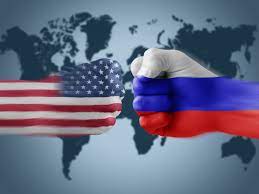The Cold War and Its Effects on American Policies
May 08, 2023
This paper discusses the history of the Cold War and its effects on American policies. The Cold War was a period of political and military rivalry between the United States and Soviet Union, which lasted from 1947 to 1991. During this time, the two powers were engaged in an arms race, attempting to outdo each other technologically, economically and militarily. As a result of this competition, American policies became increasingly focused on containment of Communism and defense against Soviet aggression.
In 1949, the North Atlantic Treaty Organization (NATO) was formed by twelve Western nations as a way to counter Soviet expansionism. NATO provided for collective security among its members states, meaning that if one member nation were to be attacked by another nation outside NATO’s membership, all members would be obligated to come to that nation’s aid. This policy of collective defense demonstrated American commitment to defending against Soviet aggression, and was a major part of Cold War policies in the United States.

The Cold War did not only affect American policies on military defense, but also had an impact on economic policy. The intense competition between the U.S. and USSR caused both countries to invest heavily in research and development for new technologies, as well as into their respective economies. In order to remain competitive against the Soviets, the United States adopted a foreign policy known as containment, which sought to contain Communism within its existing borders instead of allowing it to spread outward. Additionally, during this period the US implemented numerous economic programs designed to boost economic growth, such as the Marshall Plan and the Berlin Airlift.
Overall, the Cold War had a profound effect on American policy during this period. Many of the policies implemented by both the U.S. and Soviet Union were geared towards defending against each other, while at the same time attempting to gain an advantage in various aspects such as technological advancement, economic strength and military power. Consequently, these policies had lasting effects on both countries long after the end of their conflict and continue to shape international relations today.
